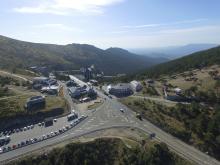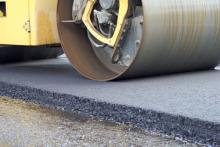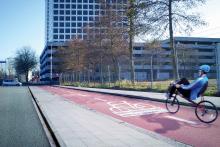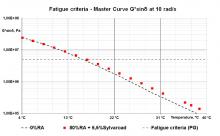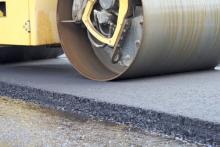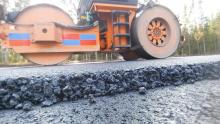Arizona Chemical, a subsidiary of
RA with a binder that hard is out of France’s national specification for reuse in a new, fresh asphalt mix. Normally such RA can be recycled only for a road’s unbound sub-base layers and not for use in quality bituminous-bound upper layers.
Having the ability to rejuvenate such binder is a significant breakthrough. "We value the environmental benefits of preserving natural resources and using less material,” said Eurovia. “There is also an economic advantage as we can use less bitumen.”
The SYLVAROAD RP1000 additive was directly sprayed on the RA, which means that its efficiency was maximised, especially considering the low dosage necessary (1.5 kg per tonne of final asphalt mix). In this process, the additive reaches only the RA needing rejuvenation, whereas the standard approach of injecting an additive into the bitumen line disperses the additive across all material found – even if the interaction is unnecessary.
Arizona Chemical and Eurovia said that the paving project is an excellent example of the circular economy in action. The RA came from Poitiers, near the Niort region, where it was treated with the SYLVAROAD RP1000 additive – a product made from bio-based pine chemicals. The treated RA was transported to the Arizona Chemical plant in that same area, where the RA mix was then used to repave a highly trafficked road on the plant premises. That stretch of asphalt road is used by trucks and other heavy equipment to get to and from the manufacturing facility.
“The project results show that RA generally considered not re-usable can be brought back to life with an effective additive and a more efficient process, while still meeting performance as set in end specifications,” the companies said.
Lab results are still coming in on the conversion of this extremely hard RA to useable material and further success can open the way to gaining higher value from RA in extreme condition.
Arizona Chemical additive rejuvenates extra-hard reclaimed asphalt
Arizona Chemical and Eurovia report that they have successfully used reclaimed asphalt that was specified as too hard for re-use on high-value road applications.
Niort, France: hard binder treated with bio-based SYLVAROAD additive on critical upper layers of road.

